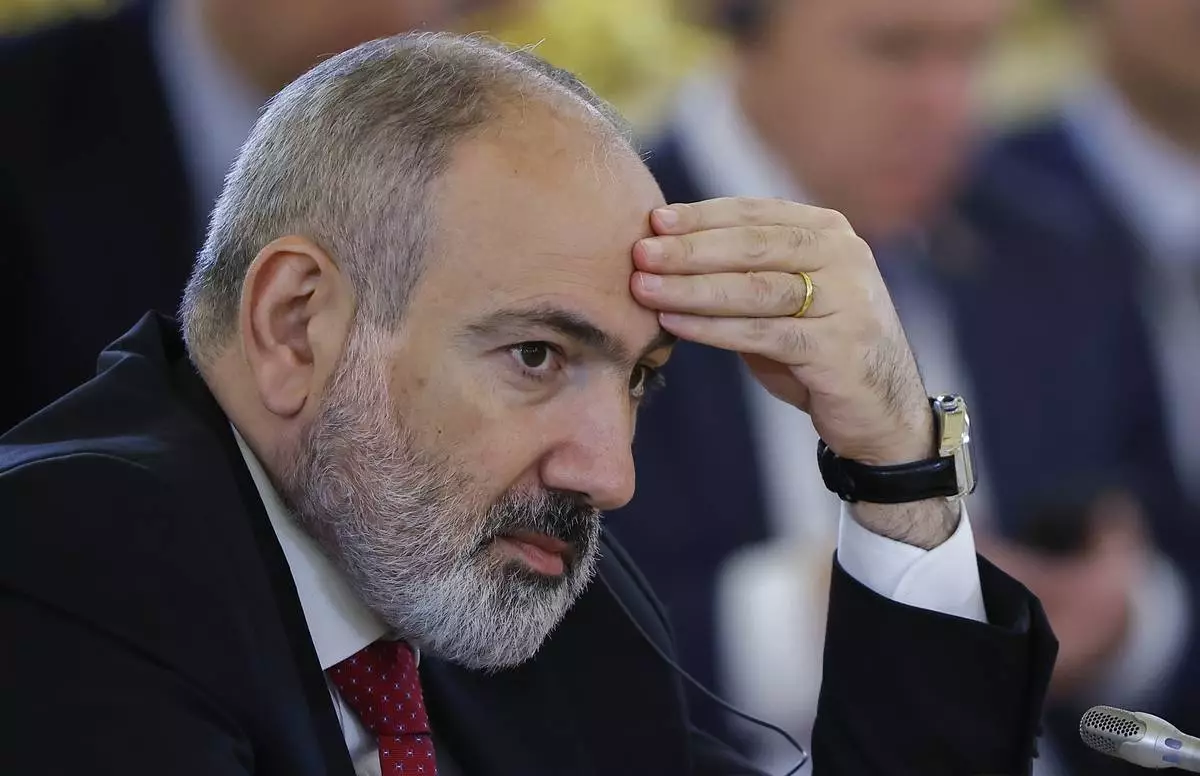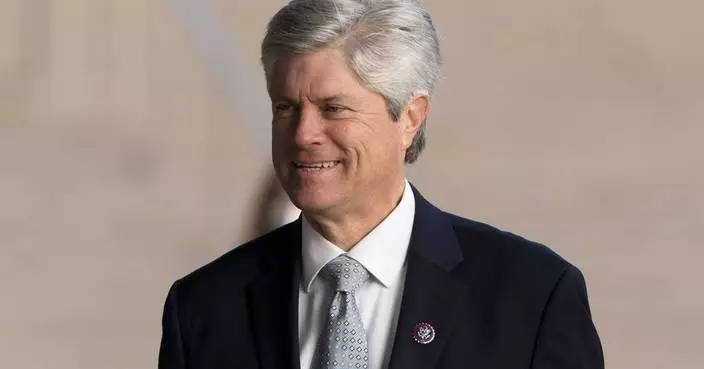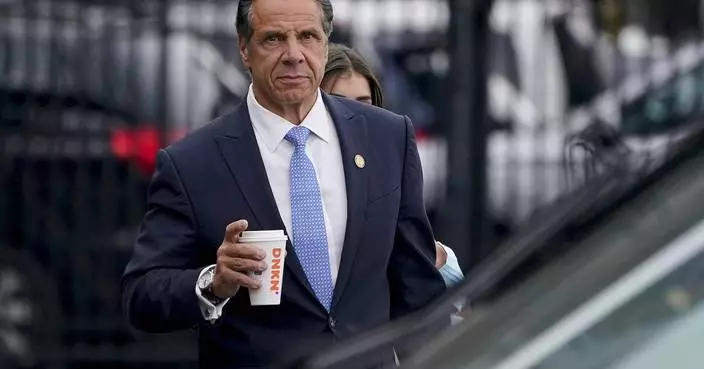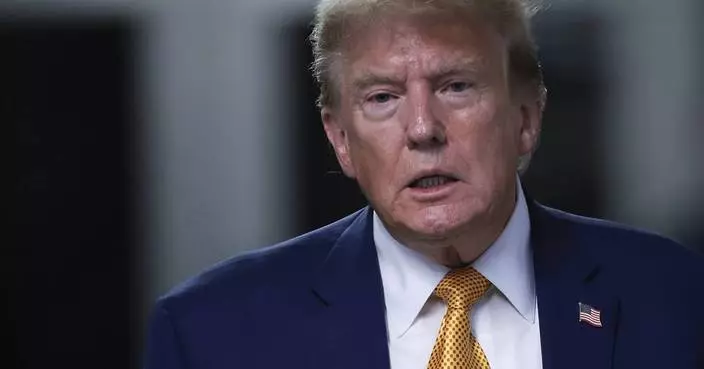UnitedHealth Group trounced first-quarter expectations even as costs from a cyberattack to its Change Healthcare business ate into the company’s performance.
The health care giant also said Tuesday that care patterns in the year’s first quarter met its expectations after soaring medical costs at the end of last year surprised Wall Street.
Company shares jumped in midday trading.
UnitedHealth said earlier this year that a ransomware group had gained access to some of the systems of its Change Healthcare business, which provides technology used to submit and process insurance claims. The attack disrupted payment and claims processing around the country, stressing doctor’s offices and health care systems.
Federal civil rights investigators are looking into whether protected health information was exposed in the attack.
UnitedHealth is still restoring several services from the February attack. It took an $872 million hit from it in the first quarter, but CEO Andrew Witty told analysts on Tuesday that the company expected to bring Change Healthcare back “much stronger than it was before.”
UnitedHealth also booked a roughly $7 billion charge in the quarter for selling a Brazilian health benefits and care provider it bought more than a decade ago.
Overall the company lost $1.41 billion in the first quarter. Total revenue grew more than 8% to $99.8 billion.
Adjusted earnings totaled $6.91 per share. That excluded the cost from the sale of the Brazilian business and some of expenses tied to the cyberattack.
Analysts expected earnings of $6.61 per share on $99.23 billion in revenue.
UnitedHealth provides health insurance for more than 49 million people in the United States. Its Optum segment also provides care, runs one of the nation’s largest pharmacy benefits management businesses and offers technology services.
Total costs tied to the cyberattack and recovery amounted to 74 cents per share in the quarter. About two-thirds of that, or 49 cents, was direct response costs that the company excluded from adjusted earnings.
That includes increased medical expenses the company incurred from suspending its pre-approval or prior authorization requirements for some care.
UnitedHealth expects the full impact of the cyberattack will amount to a hit of between $1.15 to $1.35 per share to earnings this year.
The Minnetonka, Minnesota, company on Tuesday also reaffirmed a 2024 earnings forecast it first laid out last fall for adjusted earnings of $27.50 to $28 per share.
Analysts expect earnings of $27.50 per share.
Company shares climbed more than 5% to $469.04 in midday trading Tuesday. The Dow Jones Industrial Average, of which UnitedHealth is a member, rose slightly.
Jefferies analyst David Windley said in a research note that the positive share reaction was not surprising because the stock had been down partially in anticipation of a guidance cut.

FILE - Pages from the United Healthcare website are displayed on a computer screen, Feb. 29, 2024, in New York. UnitedHealth Group trounced first-quarter expectations even as costs from a cyberattack to its Change Healthcare business ate into its performance. The health care giant also Tuesday, April 16, that care patterns in the year’s first quarter met its expectations after soaring medical costs at the end of last year surprised Wall Street. (AP Photo/Patrick Sison, File)
Yerevan, ARMENIA (AP) — Thousands of protesters gathered Thursday in the Armenian capital, Yerevan, to demand the resignation of Prime Minister Nikol Pashinyan over his government's decision to hand over control of border villages to Armenia's long-time rival Azerbaijan.
Armenia and Azerbaijan have fought two wars since the Soviet Union collapsed and Armenia said in April that it would return the villages to Azerbaijan. That decision came after Azerbaijan in September waged a lightning military campaign in Nagorno-Karabakh, a majority ethnic Armenian region inside Azerbaijan. That caused tens of thousands of people to stream into Armenia, sparking demonstrations as protesters called for the prime minister to be ousted.
Protesters led by a senior cleric in Armenia's church walked a distance of around 100 miles (160 kilometers) from villages near the border with Azerbaijan to Yerevan where they gathered Thursday in Republic Square.
Videos shared on social media showed thousands of people waving Armenian flags. A senior Armenian cleric said a prayer and told the protesters he gave Pashinyan one hour to resign, blaming him for the loss of Armenian territory.
Archbishop Bagrat Galstanyan told protesters they should “engage in peaceful acts of disobedience,” if Pashinyan did not listen to their demands.
Pashinyan visited Moscow Wednesday and held talks with Russian President Vladimir Putin amid spiraling tensions between the estranged allies. The meeting took place a day after Putin began his fifth term at a glittering Kremlin inauguration which the Armenian leader did not attend.
Putin's spokesperson Dmitry Peskov was quoted Thursday by Russian state news agency Tass as saying the two leaders had agreed to the removal of Russian forces from some Armenian regions.
In brief remarks at the start of the talks, Putin said that bilateral trade was growing, but acknowledged “some issues concerning security in the region.”
Pashinyan, who last visited Moscow in December, said that “certain issues have piled up since then.”
Armenia’s ties with Russia, a longtime sponsor and ally, have grown increasingly strained after Azerbaijan waged its military campaign in September to reclaim the Karabakh region, ending three decades of ethnic Armenian separatists’ rule there.
Armenian authorities accused Russian peacekeepers who were deployed to Nagorno-Karabakh after the previous round of hostilities in 2020 of failing to stop Azerbaijan’s onslaught. Moscow, which has a military base in Armenia, has rejected the accusations, arguing that its troops didn’t have a mandate to intervene.
The Kremlin, in turn, has been angered by Pashinyan’s efforts to deepen ties with the West and distance his country from Moscow-dominated security and economic alliances.
While Pashinyan was visiting Moscow, Armenia’s foreign ministry announced that the country will stop paying fees to the Collective Security Treaty Organization, a Russia-dominated security pact. Armenia has previously suspended its participation in the grouping as Pashinyan has sought to bolster ties with the European Union and NATO.
Russia was also vexed by Armenia’s decision to join the International Criminal Court, which last year indicted Putin for alleged war crimes connected to Russia's actions in Ukraine.
Moscow, busy with the Ukrainian conflict that has dragged into a third year, has publicly voiced concern about Yerevan’s westward shift but sought to downplay the differences.
Kremlin spokesman Peskov conceded Tuesday that “there are certain problems in our bilateral relations,” but added that “there is a political will to continue the dialogue.”

FILE - Armenian Prime Minister Nikol Pashinyan attends a meeting of the Supreme Eurasian Economic Council of the Eurasian Economic Union at the Kremlin in Moscow, Russia, on Wednesday, May 8, 2024. Thousands of protesters gathered Thursday, May 9, 2024, in the Armenian capital, Yerevan, to demand the resignation of Prime Minister Nikol Pashinyan over his government's decision to hand over control of border villages to Armenia's long-time rival Azerbaijan. (Evgenia Novozhenina/Pool Photo via AP, File)











